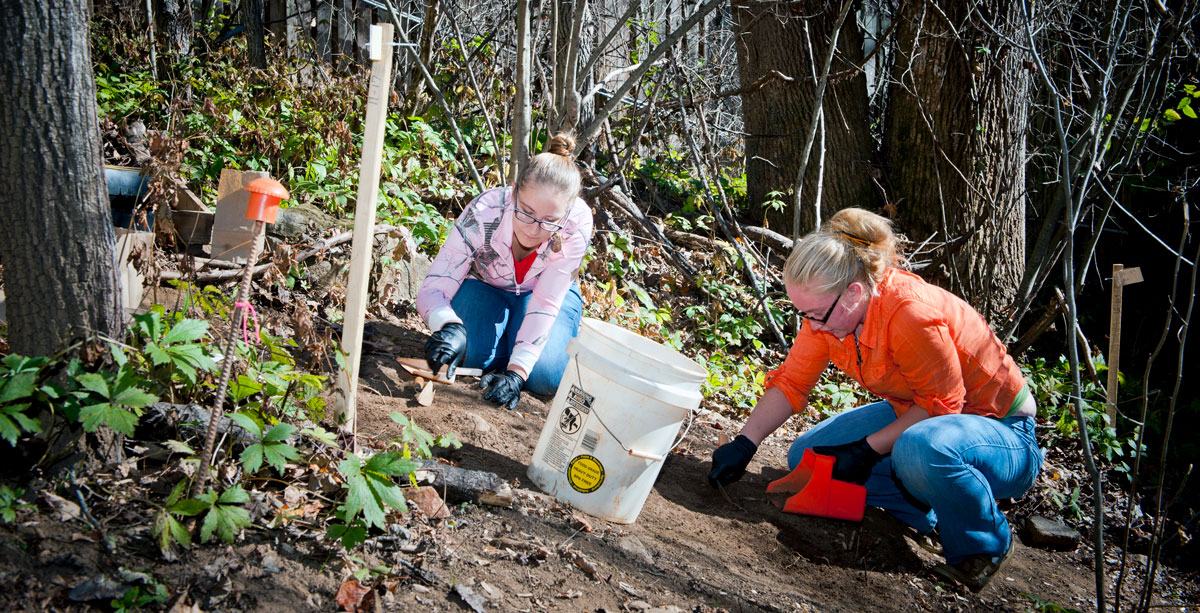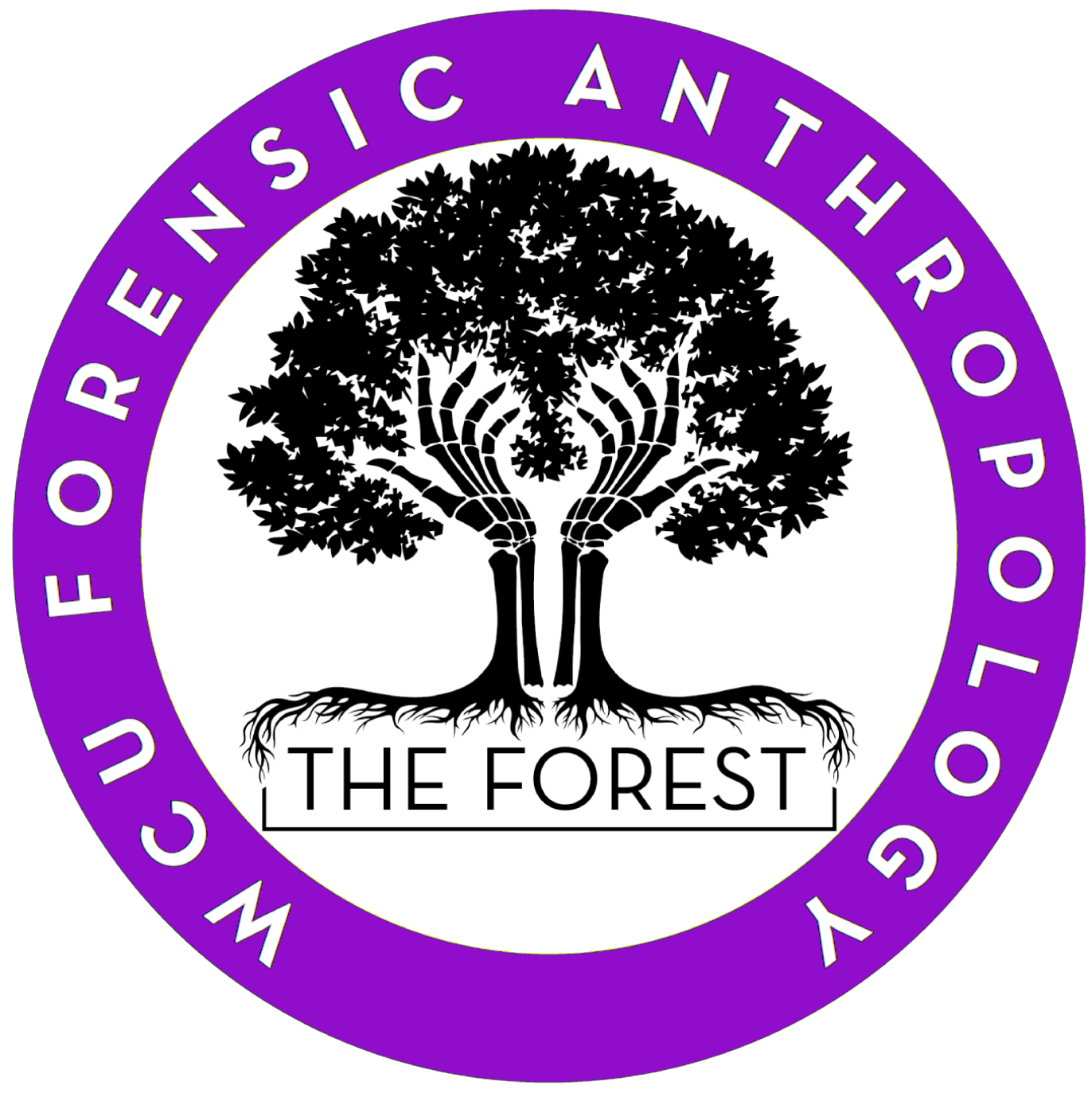Forensic Anthropology Facilities
Forensic Osteology Research Station
The Forensic Osteology Research Station (FOREST) was the second human decomposition research facility in the world, established in 2007. It is an outdoor human decomposition facility located in Cullowhee, North Carolina in the Blue Ridge physiographic province at an altitude of 2271 feet above sea level.
The mission of the Forensic Osteology Research Station is to promote education, research, and service in forensic anthropology and human decomposition.
The skeletal remains of willed body donors to the FOREST become part of our documented human skeletal collection. Research and Education using the John A. Williams Human Skeletal Collection
Here are some new stories about WCU's FOREST and Forensic Anthropology Program:
How Decomposition Facilities Help Forensic Science
The what, where, and why of human decomposition facilities

The FOREST and the donated human remains associated with it serve to educate students and professionals through experiential learning. The educational foci of the FOREST are threefold:
1) Decomposition and the broader field of taphonomy 2) Systematic location and recovery of human remains 3) Human skeletal biology
At the FOREST, education is not limited to human students. Remains donated to the FOREST aid in training Human Remains Detection (HRD) dogs. The service provided by HRD dogs and their handlers is crucial in locating human remains and bringing closure to families.
The FOReSt is dedicated to research so that our understanding of postmortem events and their implications is deepened. Many of the research projects carried out at the FOREST focus on improving our ability to estimate the postmortem interval, locate human remains, or understand variation in remains and their surroundings to improve our ability to interpret death scenes.
The service component of the FOREST’s mission includes providing case consultation to law enforcement, providing training material to law enforcement, HRD dog handlers, and providing service to individuals or families seeking an alternative to traditional funerary practices.
Facility Tours
Out of respect for our donors, we do not offer public or school tours of the FOREST. If you are a professional in anthropology or a related field such as law enforcement, a medical field, or a funeral professional, please contact our Forensic Anthropology Facilities Director, Dr. Nicholas Passalacqua with the purpose of your requested visit.
Donations to the FOREST
WCU Forensic Anthropology Facilities is accepting donors that meet our donation requirements (see link below)
As always, we will accept all donors regardless of their medical conditions if they have been cremated.
Interested individuals may donate their body, or the body of their next-of-kin to WCU's forensic anthropology program. Information, policies, and paperwork for this process can be found on the Body Donation Information Webpage.
For further information regarding the donation process or to ask questions, please
contact:
Dr. Rebecca George, Forensic Anthropology Facilities Curator
Phone: 828.227.2816
Email: wcubodydonation@wcu.edu
Western Carolina Human Identification Laboratory
The Western Carolina Human Identification Laboratory (WCHIL) is a fully equipped facility dedicated to the recovery, storage, and analysis of human remains. The main WCHIL facility covers 1100 square feet. This laboratory has a single body morgue refrigerator and freezer for the handling and maintenance of fresh and decomposing human remains. The facility is fully equipped for:
- Routine skeletal analysis
- Removal of soft tissue for skeletal analysis
- Maintaining chain of custody
- State of the art GPS survey and recovery of human remains
- Burned bone and cremation analysis
- Bone trauma analysis

